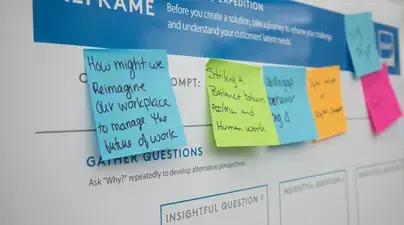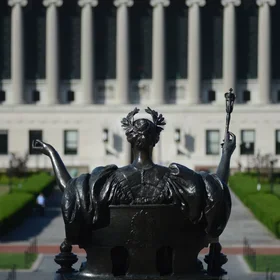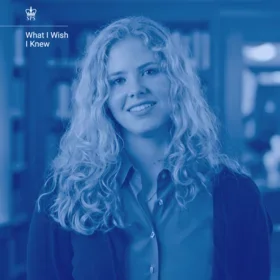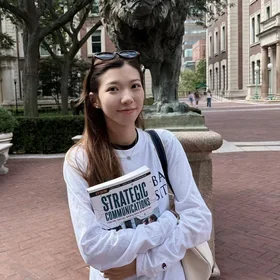Christopher Gilchrist (‘20SPS, Information and Knowledge Strategy) knew he wanted to pursue Master’s-level education when he joined PwC five years ago and now an Emerging Technology Lead for the U.S. Firm. The question remained, however: What program is the right fit for my future? That’s where Columbia’s part-time Master of Science in Information and Knowledge Strategy (IKNS) came in.
What made you choose IKNS over other graduate-level programs?
I wanted to challenge myself and learn something different. Something that was a complement to what I was doing, not a substitute. One of the values of the program at IKNS is that you can make it what you want. There’s not one defined way to get value or outcomes out of it.
How have you explained what you’re studying to someone who may not know what your field of work entails?
The IKNS program is truly about learning to be productive in unique ways, non-traditional ways, in your profession. As an example, management theory is being challenged in this program to focus on things that are felt but not necessarily touched. I think that’s where true leaders and true innovators in organizations really thrive: in those structural holes, per se. This program sets the tone for how to be very productive in very ambiguous and grey areas in organizations. That is also where the opportunity really is.
This program sets the tone for how to be very productive in very ambiguous and grey areas in organizations.
— Christopher Gilchrist, ’20SPS, M.S. in Information and Knowledge Strategy
You recently completed the program. What were some of the highlights of the program for you?
The first highlight is that we were able to do independent research. There were a handful of us that took on that challenge over the summer. Faculty viewed us as colleagues and we were able to take an idea and run with it. My independent research involved bridging economics and intangibles to create a narrative around the future of work and how to measure trust in organizations and the importance of trust in organizational development.
The second highlight, although it was very challenging, is the capstone [project]. The program was able to bring NASA in for the cohort, for us to talk at the agency level with some of the most influential leaders of NASA and talk about true strategy. That’s a resume-builder. This is something that people 20 years in their career never get to experience and we got to experience it very early in ours.
How you were able to forge connections between your field of work and the capstone?
In my work with the capstone, the foundation of what we presented was my independent research from the summer. Then we took other things and built a future for NASA, specifically for their flagship missions. This is a project you could start and your great-grandchildren could finish, lasting 75-100 years. How do you manage strategy and talent when the economics of value could change from the time it starts until it ends? We were helping them think about processes and programs and initiatives while continuously calibrating to the new world.
In my emerging tech capacity at PwC, part of our work is to help the small to the largest organizations in the world find productive ways of innovating. Some of the skills I already had as a consultant helped me inform decisions with NASA. But I think it was more of what I was able to do in the program that informed my capstone work than what was from my background.
I was able to form an ability during my program that impacted my capstone later. That’s pretty killer. They let me go down my own path and learn something new and that turned into the foundation of what our cohort gave to NASA.

Do you have any advice for students in the program or for people in your field of work considering graduate studies in IKNS?
For students in the program: Don’t think there’s one way to find value. Part of this journey is to find what’s applicable to you within your own ambitions. This is for you to define who you want to be.
In terms of people in my field of work: The ones that are productive need this skillset, being comfortable without having the ability to define the future. In any consultancy or advisory capacity, anyone who has aspirations of becoming a leader, this program teaches you things that [would take] some people... ten years of experience to learn on your own.
The engagement level is unique in this program. What I was asked to do was put [my assignments] in my own words, my own context; to put it in the IKNS framework, but apply it to my actual work.
— Christopher Gilchrist, ’20SPS, M.S. in Information and Knowledge Strategy
How was balancing the coursework with your day-to-day responsibilities?
There were times it was difficult but never overwhelming because I wasn’t playing to someone else’s tune. I was playing to mine. The engagement level is unique in this program. What I was asked to do was put [my assignments] in my own words, my own context; to put it in the IKNS framework, but apply it to my actual work.
Learn more about the M.S. in Information and Knowledge Strategy (IKNS) program at Columbia.


